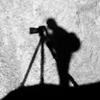Ultimate test of sharpness
Aug 2, 2014 11:34:41 #
To some it is about the process, to others it's about the equipment, or the history of photography, or the image, or being around other photographers. Not all of us are in this for the same reason. Tolerance my friends, tolerance.
Aug 2, 2014 11:37:35 #
joer wrote:
Interesting exercise. Don't why some are so negative about it. If one has no interest why bother to relpy... just move on.
I can understand why it is of no interest to most.
After all, there isn't much you can do about it and who can see it anyway?
But for a few of us it matters.
If i want a picture showing a feature on one of my macro critters, i have to know how much magnification i will need to overcome the blurring my 800's filter is going to introduce.
If the camera needs 5 pixels to define each edge of a hair then i need to be sure my hair is at least 12 pixels wide or its going to simply not appear.
Adding insult to injury, my stacking software depends on edge detection to do its job.
If the camera is devoted to blurring those edges, my software ignores the change and the detail is discarded,
Aug 2, 2014 11:43:27 #
oldtigger wrote:
I can understand why it is of no interest to most.... (show quote)
Exactly my point oldtigger! Understand your camera and it's abilities and you can create the images you want. If sharpness is your goal then all these things play an important role.
Aug 2, 2014 12:07:37 #
GAS496 wrote:
To some it is about the process, to others it's about the equipment, or the history of photography, or the image, or being around other photographers. Not all of us are in this for the same reason. Tolerance my friends, tolerance.
Ok, I will give. This topic might get interesting yet.
Jim D
Aug 2, 2014 12:19:11 #
" At that time I was more interested in the opposite sex. " One thing Ive learned over the past few years about the opposite ex...along with sharp transitions...is...don't run but walk very briskly...much easier on the blood pressure and wallet...LOL
Aug 2, 2014 13:25:47 #
zigipha
Loc: north nj
This is the first time i posted a question; i was well grounded for the onslaught!
1. "why worry about the pixels? worry about the picture!". Well, who says i can't worry about both? Who says it has to be "or"; it can be "and" (reference to into the woods lyrics). What prompted me to do this was that i took some long photos of a concert and noticed that some faces were "unnatural". I showed this to a few local folks and they said it looked like an out of focus issue. I was sure that this was in focus, and tried to find other sources. Reading about sweet spots and how zoom lenses are jacks of all trades and masters of none, I tried to do an experiment to see how my lens actually performed (not the one in some test lab, but the one in my hands). After all the F-stops, IS on/off, 18mm vs 270mm, the answer was usually 7-8 pixels, sometimes up to 10. Contrary to everything i read on here - nothing made much of a difference. So..maybe all that stuff really doesn't matter IN MY CAMERA. So i was reaching out to others to get their insights if any.
2. "get a life" and "once you figure out a camera can actually take pictures" - i am an engineer by profession and analytic by nature. When i saw the real world tests go contrary to "popular beliefs", I had a need to dig deeper. At least my time is spent trying to educate myself rather than ding others for activities I am not personally motivated to do.
3. i don't do pp pixel editing or super close macro work.
4. Oldtigger - thanks for the pic;seems yours is 5 pixels.
1. "why worry about the pixels? worry about the picture!". Well, who says i can't worry about both? Who says it has to be "or"; it can be "and" (reference to into the woods lyrics). What prompted me to do this was that i took some long photos of a concert and noticed that some faces were "unnatural". I showed this to a few local folks and they said it looked like an out of focus issue. I was sure that this was in focus, and tried to find other sources. Reading about sweet spots and how zoom lenses are jacks of all trades and masters of none, I tried to do an experiment to see how my lens actually performed (not the one in some test lab, but the one in my hands). After all the F-stops, IS on/off, 18mm vs 270mm, the answer was usually 7-8 pixels, sometimes up to 10. Contrary to everything i read on here - nothing made much of a difference. So..maybe all that stuff really doesn't matter IN MY CAMERA. So i was reaching out to others to get their insights if any.
2. "get a life" and "once you figure out a camera can actually take pictures" - i am an engineer by profession and analytic by nature. When i saw the real world tests go contrary to "popular beliefs", I had a need to dig deeper. At least my time is spent trying to educate myself rather than ding others for activities I am not personally motivated to do.
3. i don't do pp pixel editing or super close macro work.
4. Oldtigger - thanks for the pic;seems yours is 5 pixels.
Aug 2, 2014 13:56:53 #
Now I have to wonder what the transition was on film. Better yet what, if any, is the bleed transition for the human eye? Is 7 pixels sharp? How does this affect printing where you are going to have some bleed just from the nature or the process? How is that bleed affected when the photo is sharpened? I can see why you are interested in this. This is something that I have never considered before. Thanks (I think).
Aug 2, 2014 14:04:19 #
jimni2001 wrote:
Now I have to wonder what the transition was on film. Better yet what, if any, is the bleed transition for the human eye? Is 7 pixels sharp? How does this affect printing where you are going to have some bleed just from the nature or the process? How is that bleed affected when the photo is sharpened? I can see why you are interested in this. This is something that I have never considered before. Thanks (I think).
with film, adjacent grains could deplete the developer and we would use the amount of agitation to control the gamma.
Ain't nothin new, just rears its ugly head with new disguises,
Aug 2, 2014 14:21:26 #
CatMarley wrote:
This post confirms my suspicion that guys are more into the gear than the art. Who cares about the pixels? What about the picture?
Cat, come on now, what do picture have to do with any of this??!! :lol
SS
Aug 2, 2014 14:45:27 #
SharpShooter wrote:
Cat, come on now, what do picture have to do with any of this??!! :lol
SS
SS
When you stroke that slider to sharpen, change contrast or clarify an image, what pixels are you messin with?
Aug 2, 2014 15:21:53 #
zigipha wrote:
This is the first time i posted a question; i was well grounded for the onslaught!
1. "why worry about the pixels? worry about the picture!". Well, who says i can't worry about both? Who says it has to be "or"; it can be "and" (reference to into the woods lyrics).
1. "why worry about the pixels? worry about the picture!". Well, who says i can't worry about both? Who says it has to be "or"; it can be "and" (reference to into the woods lyrics).
Exactly! If you learn what makes pixels, you learn what makes a picture. However good one might be at everything else, each and every part of photography helps with the rest.
zigipha wrote:
I tried to do an experiment to see how my lens actually performed (not the one in some test lab, but the one in my hands). After all the F-stops, IS on/off, 18mm vs 270mm, the answer was usually 7-8 pixels, sometimes up to 10. Contrary to everything i read on here - nothing made much of a difference. So..maybe all that stuff really doesn't matter IN MY CAMERA. So i was reaching out to others to get their insights if any.
The most basic answer is that the raw sensor data encodes colors using a Bayer Color Filter Array, and when that is decoded and converted to an RGB encoded image it is impossible to change from one color to another is less than the width of the matrix used to decode colors. At a minimum that is a 3x3 matrix (which provides the lowest quality), and it is usually 5x5 or even larger.
This has a very dramatic effect of the sharpness of a photograph under different conditions. The algorithms to resample the pixel dimensions for a smaller print or display are not the same as the ones used to up size an image for a large print. How these various processing algorithms are applied to an image makes a big difference in how sharpening works. (For that reason, when you see someone say they always use one type or amount of sharpen... you can know positively they are not getting the best quality most of the time. And they will be the ones to tell you the pixel peeping is wasted time, as is worrying about pixel quality as you are.)
zigipha wrote:
2. "get a life" and "once you figure out a camera can actually take pictures" - i am an engineer by profession and analytic by nature.
Well... it's true as stated. It is also true that as a person learns each different part of the entire process, the pictures they take improve.
Aug 2, 2014 23:36:48 #
Bram boy
Loc: Vancouver Island B.C. Canada
zigipha wrote:
This is getting literally down to pixel peeping. b... (show quote)
Aug 5, 2014 16:48:03 #
wj cody
Loc: springfield illinois
RWR wrote:
You didn't ask, but here's my opinion of DXO: "may not have much real world application!" :lol:
Edit: I should put my motto in an avatar: "I don't do wall charts."
Edit: I should put my motto in an avatar: "I don't do wall charts."
oh, oh, you are agreeing with me....you should call your physician!
Aug 5, 2014 22:10:22 #
GAS496 wrote:
Zig, br br It's obvious from the responses you ar... (show quote)
True, it can be very important, but many photographers have been technically poor but great at expression. Honestly, the best way to learn equipment is to produce photographs.
Aug 5, 2014 22:13:45 #
If you want to reply, then register here. Registration is free and your account is created instantly, so you can post right away.







